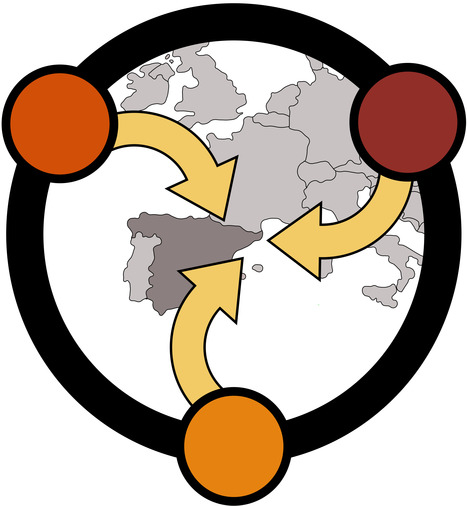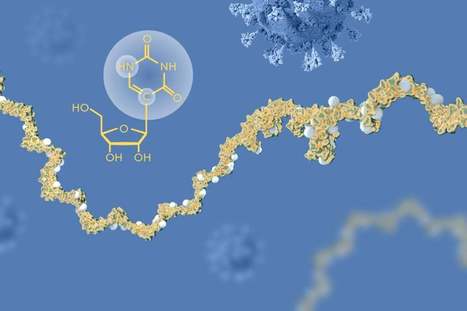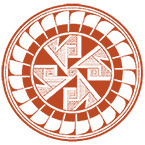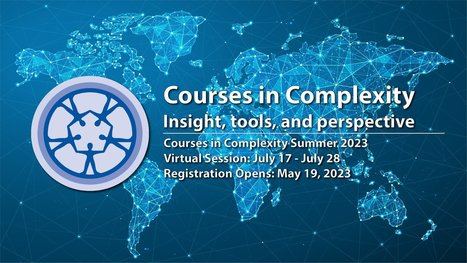 Your new post is loading...
 Your new post is loading...

|
Scooped by
Complexity Digest
September 26, 2024 12:51 PM
|
The Complex Systems Society (CSS) organizes every year a main conference (CCS) — the most important annual meeting for the complex systems research community.
The Complex Systems Society invites bids to host the 2026 and 2027 editions.
The conference is generally held in September/October of each year.
More at: cssociety.org

|
Scooped by
Complexity Digest
September 19, 2024 3:58 PM
|
We are looking to recruit two postdoctoral scholars for a position in an interdisciplinary NSF-funded research project. The goal is to discover how collectives can be made more creative, intelligent and when they can select the rules governing their interactions. The focus of the position is on designing and running large-scale online behavioral experiments.
We are seeking candidates with strong quantitative and computational training in behavioral, cognitive, or social science. Computer/information scientists with interest in human behavior are also welcome to apply. Scholars will work closely with each other and the project’s lead investigators: computational social scientist Seth Frey @ UC Davis, cognitive scientist Nori Jacoby @ Cornell University, behavioral scientist Ofer Tchernichovski @ Hunter College CUNY, and sociologist Dalton Conley @ Princeton University. The positions will be based in UC Davis and Cornell University
More at: recruit.ucdavis.edu

|
Scooped by
Complexity Digest
September 13, 2024 10:26 AM
|
A two-year postdoctoral position starting in October 2024 is available to work within the MapCDPerNets project (https://www.mapcdpernets.es). The project explores the existence of a sociocultural continuum able to predict the consistency of observed cultural dimensions and patterns of interaction, and develop a set of network measures oriented to capture this “cultural signature”. The project is funded through a generous grant of the Fundamentos Programme of Fundación BBVA and involves researchers from Universidad Carlos III de Madrid (UC3M), Universitat Autónoma de Barcelona and University of Florida.
The postdoctoral research will join the GISC and RySC groups at UC3M. This is a unique opportunity to work at the interface of complex systems with internet measurements and web transparency and privacy. Thus, GISC, led by Anxo Sánchez (project coordinator) focuses on topics such as personal networks: evolution, structure, prediction; social norms and their relationship with behavior, as well as their measurement in experiments; behavioral experiments, and evolutionary game theory, whereas the RySC team participating in the project led by Rubén and Ángel Cuevas has a long background of developing advanced methodologies to collect large scale datasets from major technological players including Google, Facebook, LinkedIn, etc. The postdoctoral researcher will be based at the Leganés campus of UC3M, some 20 km away from Madrid downtown and easily reachable by train. More at: mapcdpernets.es

|
Scooped by
Complexity Digest
June 15, 2024 4:24 AM
|
At the Centro de Ciencias de la Complejidad (C3), Universidad Nacional Autónoma de México (UNAM) Deadline: June 28th More at: www.c3.unam.mx

|
Scooped by
Complexity Digest
April 17, 2024 2:14 PM
|
The Complex Systems Society announces the ninth edition of the CSS Scientific Awards.
The Emerging Researcher Award recognizes promising researchers in Complex Systems within 3 years of the PhD defense.
The Junior Scientific Award is aimed at recognizing excellent scientific record of young researchers within 10 years of the PhD defense.
The Senior Scientific Award will recognize outstanding contributions of Complex Systems scholars at whatever stage of their careers.
Deadline: April 30th, 2024. More at: cssociety.org

|
Scooped by
Complexity Digest
February 19, 2024 8:37 AM
|
The Complex Systems Society (CSS) organizes every year a main conference (CCS) - the most important annual meeting for the complex systems research community. The Complex Systems Society invites bids to host the edition for 2025. The conference is generally held in September/October of each year. Interested potential organizers should send a short document (6 pages max.) detailing the proposal to the Society account css@cssociety.org (please add jfmendes@ua.pt and jramasco@ifisc.uib-csic.es in cc). The last edition was in Salvador, Brasil (CCS2023). The next one will be in Exeter/London, UK (CCS2024). The CCS series in recent years alternates between Europe, Asia and the Americas. In the edition 2025, preference will be given to bids from outside Europe in this edition even though bids from other locations will be also considered. The deadline for proposals submission is April 30, 2024. More at: cssociety.org

|
Scooped by
Complexity Digest
January 2, 2024 3:45 PM
|
Jumpstart Postdoctoral Opportunity @ FAU’s Center for Complex Systems
The Human Brain & Behavior Laboratory (HBBL) located in FAU’s Center for Complex Systems in the Charles E. Schmidt College of Science (Valery Forbes, Dean) seeks an excellent candidate to join our team to investigate the roots of biological agency (see recent article in PNAS). HBBL explores how sentient agency emerges through self-organizing, coordinative processes that span organisms and environments. The postdoctoral fellow will assist in developing next-generation interactive systems for empirical study, conducting experiments with human infants (involving 3D motion capture, EEG, eye tracking) and analyzing data. The post-holder will have freedom and capacity to develop their own scientific ideas through experimental design and preparing manuscripts and grant applications. This position offers opportunity to participate in HBBL’s active collaborations with world-leading teams in Artificial Intelligence analysis (Intelligent Systems Research Centre, Ulster University, The Institute for the Augmented Human, University of Bath), in mathematical modeling using Active Inference (Welcome Centre for Human Neuroimaging, Univ. College London) and Coordination Dynamics frameworks (Institut de Neurosciences des Systèmes, Aix Marseille University). Qualified candidates will possess advanced technical skills in relevant areas such as coding (Matlab, Python, etc.), machine learning, signal processing, mathematical modeling, EEG analysis, motion capture, and electrical engineering/robotics, as well as creativity, curiosity, and a collaborative spirit. HBBL is directed by Glenwood and Martha Creech Eminent Scholar in Science J.A. Scott Kelso. Prof. Kelso founded FAU's Center for Complex Systems in 1985 with the goal of bringing scientists from different disciplines together in one place to understand the multiscale structure, function, and dynamics of complex biological systems, including human beings and their activities.
Please forward Letter of Interest to Dr Aliza Sloan (asloan2014@fau.edu) indicating qualifications, CV and names and contact information of 2 Referees as soon as possible. The expected salary will follow the current NIH postdoc salary scale plus benefits. The position will be for 2 years, assuming satisfactory progress in year one, and may be extended further depending on funding. Position start date is May to August 2024.

|
Scooped by
Complexity Digest
December 12, 2023 12:41 PM
|
The newly launched Center for Network Dynamics at Northwestern University is actively seeking postdoctoral researchers interested in complex systems and networks. We welcome applications from individuals with expertise in various aspects of network theory, including temporal, multilayer, and higher-order interactions. Additionally, we are seeking applicants with interest in network modeling of biological, physical, and engineering systems. The projects are theoretical and computational but benefit from empirical data and close collaborations with experimental colleagues. If you are passionate about advancing the understanding of networks and their applications in diverse fields, we encourage you to apply to our dynamic research team. For information on how to apply, please visit cnd.northwestern.edu

|
Scooped by
Complexity Digest
November 29, 2023 11:15 AM
|
Guest Editors: Thiago B. Murari, Marcelo A. Moret, Hernane B. de B. Pereira, Tarcísio M. Rocha Filho, José F. F. Mendes and Tiziana Di Matteo
Submissions are invited for a Topical Issue of EPJ B on Advances in Complex Systems.
In general, a complex system is a system composed of many components that may interact with each other in nonlinear ways. Examples of complex systems include fractals, chaos, nonlinear dynamics, self-organized criticality, and complex networks. This issue aims to promote research in complex systems, both in pure and applied contexts.
The goal of this topical issue is to summarize the most recent research, covering aspects such as:
Foundations of Complex Systems, Basic Sciences, and Quantum Complexity
Complex Networks
Data Science, Machine Learning, and Artificial Intelligence in the context of Complex Systems
Computation and Information Processing in Complex Systems
Economics and Finance
Social Systems
Ecological Systems
Cognition, Psychology, and Neurosciences
Complexity in Biology and Health Sciences
City Science, Mobility, and Transport
Energy, Environment, Sustainability, Climate, and Global Change
Read the full call at: epjb.epj.org

|
Scooped by
Complexity Digest
October 24, 2023 7:02 PM
|
The Department of Physics and Astronomy at the University of California, Davis, is conducting a search for an Assistant Professor in the physics of complex systems. Complex systems is a highly interdisciplinary academic field using statistical mechanics, nonlinear dynamics, and applied mathematics to elucidate the organization and function of complex systems across a wide range of physical and applied disciplines, including: many-body physics, physics of information, computational physics, network science, machine learning, complex biological systems, nonequilibrium behavior, and complex earth systems. The application deadline is November 27, 2023. More at: recruit.ucdavis.edu

|
Scooped by
Complexity Digest
October 4, 2023 7:39 PM
|
The Winter Workshop on Complex Systems is a one-week workshop where young researchers worldwide come together to work on interdisciplinary projects around complex systems.
The primary focus of the workshop is for participants to engage into novel research projects.
This is the 9th edition of the WWCS and it will be held in the Catalan Pyrenees from January 21st to Jan 26th 2024. More at: wwcs2024.github.io

|
Scooped by
Complexity Digest
October 4, 2023 3:04 PM
|
Moungi G. Bawendi, Louis E. Brus and Alexei I. Ekimov are awarded the Nobel Prize in Chemistry 2023 for the discovery and development of quantum dots. These tiny particles have unique properties and now spread their light from television screens and LED lamps. They catalyse chemical reactions and their clear light can illuminate tumour tissue for a surgeon. Read the full article at: www.nobelprize.org

|
Scooped by
Complexity Digest
October 2, 2023 3:33 PM
|
The Nobel Assembly at Karolinska Institutet has today decided to award the 2023 Nobel Prize in Physiology or Medicine jointly to Katalin Karikó and Drew Weissman for their discoveries concerning nucleoside base modifications that enabled the development of effective mRNA vaccines against COVID-19 The discoveries by the two Nobel Laureates were critical for developing effective mRNA vaccines against COVID-19 during the pandemic that began in early 2020. Through their groundbreaking findings, which have fundamentally changed our understanding of how mRNA interacts with our immune system, the laureates contributed to the unprecedented rate of vaccine development during one of the greatest threats to human health in modern times. Read the full article at: www.nobelprize.org
|

|
Scooped by
Complexity Digest
September 20, 2024 2:28 PM
|
The Young Scientist Award for Socio- and Econophysics of the German Physical Society (DPG) recognizes outstanding original contributions that use physical methods to develop a better understanding of socio-economic problems. The annually awarded prize is endowed with EUR 7,500 and is intended for young scientists (f/m) below the age of 40 at the time of submission deadline (15. October). The division of socio-economic physics (SOE) is a division of the German Physical Society (DPG) devoted to the "Physics of Socio-Economic Systems". Its aims are to foster research on these topics and to coordinate our activities and those of similar societies across Europe, and to interest young physicists in economic, urban, and social problems. The prize is awarded during the meeting of the Section of condensed matter (SKM) of the DPG.
The price is sponsored by Capital Fund Management (CFM).
More at: www.dpg-physik.de

|
Scooped by
Complexity Digest
September 16, 2024 10:43 AM
|
The Department of Management, Technology and Economics (D-MTEC, www.mtec.ethz.ch) at ETH Zurich invites applications for the above-mentioned position. The successful candidate should have an excellent publication record in complexity science with business applications, system dynamics, decision sciences, or applied operations research for modeling complex and dynamic systems. Research will focus on the theoretical and applied analysis and design of industrial or service systems. The candidate should demonstrate the ability to contribute to systems design at the organizational, national, and international levels. At the assistant professor level, commitment to teaching within the curriculum of D-MTEC and the ability to establish and lead a research group in Systems Design are expected. Research and teaching collaboration with other departments and multidisciplinary research centers is required. Assistant professorships have been established to promote the careers of younger scientists. ETH Zurich implements a tenure track system equivalent to that of other top international universities. ETH Zurich is an equal opportunity and family-friendly employer, values diversity, and is responsive to the needs of dual-career couples. Deadline: 15 October 2024 Apply at: ethz.ch

|
Scooped by
Complexity Digest
August 8, 2024 9:12 AM
|
We are accepting applications for the 2025 cohort until October 11, 2024. The Santa Fe Institute Complexity Postdoctoral Fellowships, comprising the Omidyar Fellowships, are unique among postdoctoral appointments. The Fellowships offer early-career scholars the opportunity to undertake their own independent research within a collaborative research community that nurtures creative, transdisciplinary thought in pursuit of key insights about the complex systems that matter most for science and society. The Institute rejects compartmentalized thought common in academia. Instead, SFI scientists transcend boundaries between fields, freely synthesizing ideas spanning many disciplines – from math, physics, computer science and biology to the social sciences and the humanities – in pursuit of creative insights that advance our scientific frontiers. Postdoctoral Fellows spend up to three years in residence at SFI, where they contribute to SFI’s research in the sciences of complexity and are trained to become leaders in interdisciplinary science. As thought leaders who shape the future of science, Postdoctoral Fellows also participate in a unique training program structured to develop leadership skills throughout their three-year residencies and beyond. The Institute provides an opportunity to collaborate with leading researchers worldwide, discretionary and collaborative funds, and a competitive salary with a generous benefit package including paid family leave. The Institute has no formal programs or departments. Research is collaborative and spans the physical, natural, and social sciences. Most research is theoretical (SFI does not have lab facilities) and/or computational in nature, although it may include an empirical component. SFI has 21 postdoctoral researchers, 10 resident faculty, 100+ external faculty, and averages 1000 visitors per year. Descriptions of the research themes and interests of the faculty and current Fellows can be found at SFI Research. More at: apply-sfi.smapply.org

|
Scooped by
Complexity Digest
May 29, 2024 9:34 AM
|

|
Scooped by
Complexity Digest
March 29, 2024 12:59 PM
|
This June, discover the science that teaches us about collected patterns of behavior, helps us understand the fluctuations of global finance, and can help us meet societal, organization and global challenges.
This course provides an introduction to essential concepts of complex systems and related mathematical methods and simulation strategies with application to physical, biological and social systems.
Concepts to be covered include: emergence, complexity, networks, self-organization, pattern formation, evolution, adaptation, fractals, chaos, cooperation, competition, attractors, interdependence, scaling, dynamic response, information and function.
Methods to be covered include: statistical methods, cellular automata, agent-based modeling, pattern recognition, system representation and informatics.
More at: necsi.edu

|
Scooped by
Complexity Digest
February 5, 2024 4:21 PM
|
The Complex Systems Society announces the ninth edition of the CSS Scientific Awards. The Junior Scientific Award is aimed at recognizing excellent scientific record of young researchers within 10 years of the PhD defense. The Senior Scientific Award will recognize outstanding contributions of Complex Systems scholars at whatever stage of their careers. Deadline: April 30th, 2024. More at: cssociety.org

|
Scooped by
Complexity Digest
December 13, 2023 2:48 PM
|
Complexity72h is an interdisciplinary workshop designed for young researchers in complex systems, where participants collaborate in a project for 72 hours. Next edition will be held in Madrid from June 24th to 28th. These projects are led by experienced researchers who propose and guide them throughout the week. *The Call for Tutors is currently open until January 8th*. Individuals interested in tutoring during the workshop should apply by submitting an abstract of the proposed project. While the project doesn't need to be fully developed at this stage, applicants should provide a clear idea of their focus, list the required data, and be prepared to supply it to participants. These projects will be undertaken by a group of approximately 6-8 workshop participants. Tutors will receive accommodation and meals for the entire five days, and travel expenses may be partially or fully covered based on the budget. All relevant information can be found at https://complexity72h.com/call-for-tutors/. If you are interested in becoming a tutor and leading a project, please don't hesitate to apply and spread the word among your fellow researchers and mentors! More at: complexity72h.com

|
Scooped by
Complexity Digest
December 4, 2023 1:59 PM
|
Vermont EPSCoR is offering 12 summer research internship opportunities to join our cutting-edge NSF-funded research on Harnessing the Data Revolution for Vermont: The Science of Online Corpora, Knowledge, and Stories (SOCKS). We are initiating a five-year, large-scale, interdisciplinary, and groundbreaking data science effort to better understand and harness the power of stories. SOCKS revolves around stories as an essential part of how people comprehend, explain, predict, and seek to navigate the world. SOCKS supports the Digital Humanities by developing a powerful approach to quantifying both individual stories and ecologies of stories through massive data collection, natural language processing, and large language models—computer-based encodings of the meaningful connections between words and phrases.
The Undergraduate Research Internship Program offers students the opportunity to participate in current research conducted through the NSF EPSCoR award Harnessing the Data Revolution for Vermont: The Science of Online Corpora, Knowledge, and Stories SOCKS program. SOCKS Summer Undergraduate Interns (SSUI) will be matched with a research team working on the transdisciplinary SOCKS research program. At the end of the internship, research teams will meet together at a Symposium to share their discoveries through an oral presentation and a written report of their research. Students will do full-time, high-impact, authentic research for 10 weeks in one of the following areas:
(1) Indigenous voices in global environmental governance (mentored by Fuentes-George);
(2) Data ethics, privacy, and narrative bias (mentored by Harp and Lovato);
(3) Social and health narratives (mentored by SOCKS social or health teams)
(4) Analysis of local news stories and programs (mentored by Richard Watts, the Director of the Center for Community News at UVM) More at: socks.w3.uvm.edu

|
Scooped by
Complexity Digest
November 28, 2023 11:05 AM
|
The Department of Systems Science and Industrial Engineering (SSIE) at Binghamton University's Thomas J. Watson College of Engineering and Applied Science is expanding further and seeks eight (8) tenure-track faculty: Assistant Professor in Energy Systems (1 position)
Assistant Professor in Health Systems (1 position)
Assistant Professor in Systems Science (1 position)
Associate Professor of Nanofabrication (1 position)
Associate or Full Professor in Energy Storage (1 position)
Associate or Full Professor in Energy Systems and Policy (1 position)
Associate or Full Professor in Flexible, Additive and Hybrid Electronic Systems (1 position)
Associate or Full Professor in Systems Engineering in Electronics and Semiconductor Manufacturing (1 position)
In addition, the greater Watson College of Engineering and Applied Science also has openings for the following roles, which could also have close association with SSIE depending on candidate background: AI/ML SUNY Empire Innovation Professor (1 position) Read the full article at: www.binghamton.edu

|
Scooped by
Complexity Digest
October 24, 2023 5:00 PM
|
Our research, at the edge of statistical physics, applied mathematics and computer science, relies on theoretical and computational network science to cover a wide spectrum of interests, with applications to social and socio-technical systems, computational epidemiology, smart urban systems, systems biology, systems neuroscience, systems medicine. More at: manliodedomenico.com

|
Scooped by
Complexity Digest
October 4, 2023 6:27 PM
|
This January, discover the science that teaches us about collected patterns of behavior, helps us understand the fluctuations of global finance, and can help us meet societal, organization and global challenges. This course provides an introduction to essential concepts of complex systems and related mathematical methods and simulation strategies with application to physical, biological and social systems. More at: necsi.edu

|
Scooped by
Complexity Digest
October 3, 2023 12:59 PM
|
The three Nobel Laureates in Physics 2023 are being recognised for their experiments, which have given humanity new tools for exploring the world of electrons inside atoms and molecules. Pierre Agostini, Ferenc Krausz and Anne L’Huillier have demonstrated a way to create extremely short pulses of light that can be used to measure the rapid processes in which electrons move or change energy. Read the full article at: www.nobelprize.org
|



 Your new post is loading...
Your new post is loading...





















